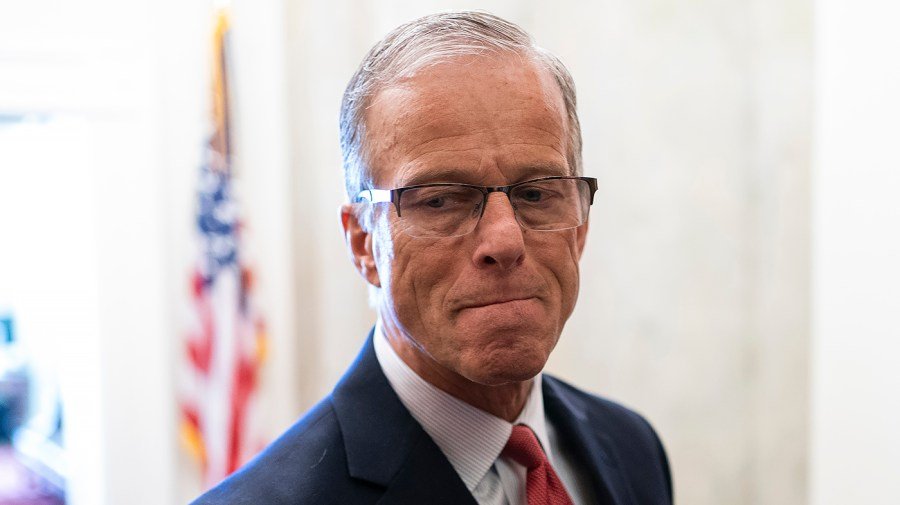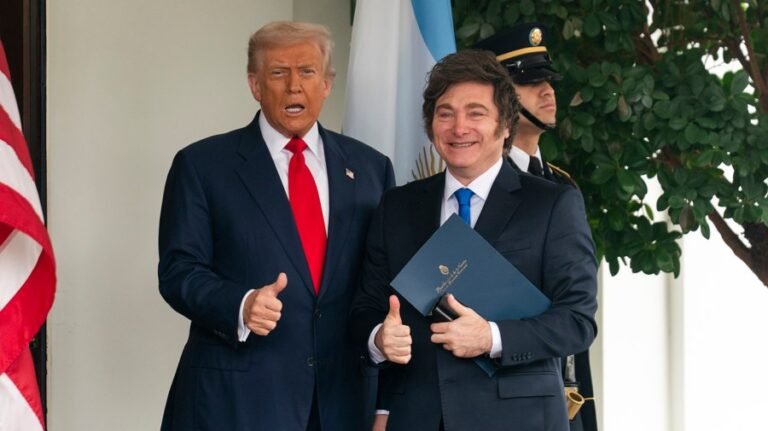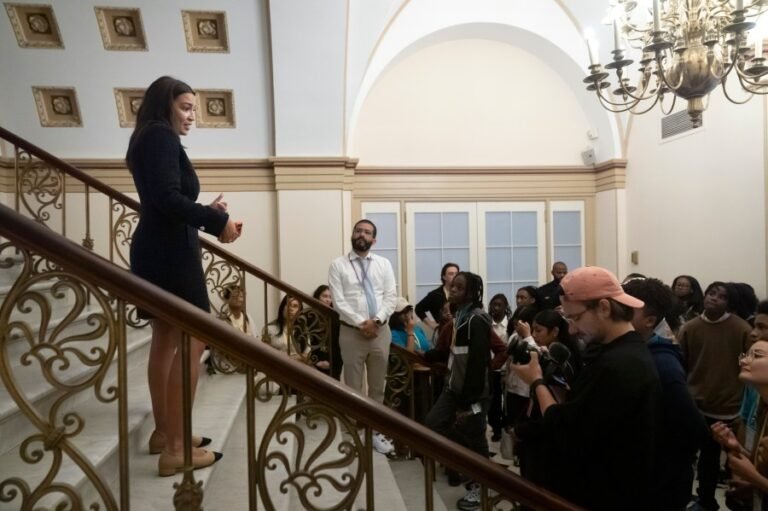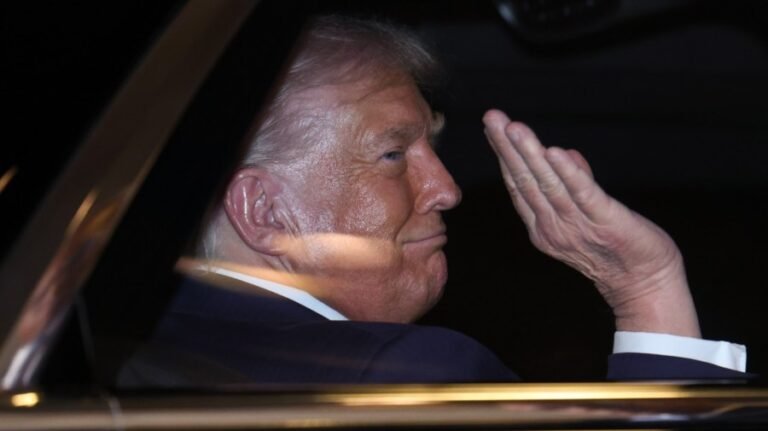
Democratic and Republican strategists and pollsters agree that the government shutdown, which will hit the 30-day mark this week, is a growing liability for both parties, which could push congressional leaders to look for an off-ramp to the stalemate soon.
Republicans passed a clean continuing resolution and can argue that Democrats triggered the shutdown by voting for the same type of straightforward funding bill they passed 13 times when they controlled the White House and Senate under President Biden.
But Senate Majority Leader John Thune (R-S.D.) and Speaker Mike Johnson (R-La.) have to worry that Republicans as the party in control of Washington will get hit hardest because the party in power typically gets the credit or blame for whatever happens on their watch.
“What we’re seeing primarily is disgust with the system as a whole and a pox on both your houses,” Whit Ayres, a prominent Republican pollster, said of polls on the shutdown.
“Most Americans can’t understand why the federal government can’t function effectively enough to pass a budget and keep the government open.”
He said Democrats are playing a weak hand in demanding a permanent extension of the enhanced Affordable Care Act subsidies and a restoration of nearly $1 trillion in Medicaid cuts, given they’re in the Senate and House minority.
“The Democrats don’t control either house of Congress or the presidency, so it’s kind of hard to think that shutting the government down is going to get the majority that controls all three to do something they don’t want to do,” Ayres said.
Democratic strategists acknowledge that the political dynamics of the shutdown are complex and the fight could backfire on them if it drags on for too long and their party is seen as refusing to compromise.
Polls show that more Americans blame Republicans than Democrats for the shutdown, but the political advantage that Democrats enjoyed on the issue earlier this month is starting to evaporate.
A Reuters/Ipsos poll of 4,385 U.S. adults published last week found that 50 percent of respondents blamed Republicans more while 43 percent blamed Democrats. And 51 percent of voters not affiliated with either of the major parties blamed Republicans while 34 percent blamed Democrats.
Both parties are taking damage from the bitter fight in Washington. A Gallup poll conducted during the first two weeks of October found that Congress’s approval rating has sunk from 26 percent to a dismal 15 percent over the past month.
Democratic strategists say they have a “built-in” advantage on the issue because the Democratic Party is viewed as the pro-government party, but the longer the shutdown drags on, the more their advantage dwindles.
“We still have an advantage, but it’s not as great as the advantage we had at the beginning,” Democratic pollster Celinda Lake said.
She said Democrats need to do a better job of emphasizing their message to voters that they’re fighting to protect Americans’ health care, even though Democratic lawmakers repeatedly stress the issue on Capitol Hill.
“It just looks like neither side is getting anything done and the voters are just frustrated and stuck with it. I don’t know that we’ve clearly defined it as, ‘We have one bottom line, we’re fighting for health care.’ I think we haven’t put a face on that. We should have flown in people who were going to have their health care taken away,” she said.
This raises serious questions for Senate Democratic Leader Chuck Schumer (N.Y.) and House Democratic Leader Hakeem Jeffries (N.Y.) about whether they need to soften their hard-line stance against passing a clean government funding bill without an extension of enhanced health insurance subsidies.
New polling shows that Democratic leaders have boosted their party’s approval rating with core Democratic voters during the shutdown — a group that felt largely disgruntled over Democrats’ performance in Washington through September.
A Quinnipiac poll conducted Oct. 16-20 found that Democrats in Congress now have a 58-percent approval rating among Democratic voters, a substantial increase compared to July when only 39 percent of Democratic voters approved of the Democrats’ job performance in Washington.
More broadly, only 26 percent of voters approved the way Democrats in Congress are doing their jobs, while 67 percent disapproved.
Lake said, “The base is happy that we took a stand.”
“They would have been furious if we had not because they were like, ‘When are the Democrats going to stand up and fight?’” she said. “It could help with turnout. But I still think we need to get a face on who we’re fighting for.”
Senate Democratic Whip Dick Durbin (Ill.) said the nearly 7 million people who showed up at “No Kings” rallies earlier this month shows that Democrats’ stand against the Trump administration is resonating with voters.
“This No Kings rally with 7 million people across America really has breathed life back into the efforts of Democrats,” he said.
Durbin said the strain the shutdown is putting on air traffic controllers, which could snarl air traffic around the country, may finally push President Trump to cut a deal on health care subsidies.
A poll conducted by Trump campaign pollster John McLaughlin of 1,000 likely voters Oct. 15-19 found that that voters blamed Democrats slightly more than Republicans for the shutdown, 39 percent to 36 percent.
But the survey also found that about two-thirds or 65 percent blamed both parties.
Steve Jarding, a former Democratic Senatorial Campaign Committee adviser and Democratic strategist, said the shutdown is a “danger to both” parties.
“The trending line is initially people are blaming Republicans. That seems normal to me … because they control everything,” he said. “Initially the polls were worse for the Republicans, now they’re getting a little worse for the Democrats.”
But he said if the shutdown drags into November, when the enrollment period for the Affordable Care Act opens, the rising cost of health insurance will start to hit millions of Americans and that will put tremendous pressure on Republicans to cut a deal.
“When these cuts [to subsidies] start coming in November, I think, ‘Boy, things are going to hit the fan,’” he said.
A memo by McLaughlin & Associates, the Trump-allied pollster, warned that “protecting the enhanced premium tax credits could be a major wedge issue” in next year’s election and “if Republicans refuse to protect the healthcare tax credits, they will be giving Democrats a big election issue advantage.”
That type of data has Republican pollsters, such as Ayres, predicting that Republicans may give Democrats some ground on extending the Affordable Care Act’s subsidies, even though the majority of the Senate and House GOP conferences oppose doing so.
“There are a number of Republicans starting with the president who would like to do something to extend the ObamaCare health care subsidies, at least for people on the lower-end of the income scale. So, it’s not unreasonable to think that there will be some sort of agreement to at least address those health care subsidies before they expire at the end of the year,” he said.


